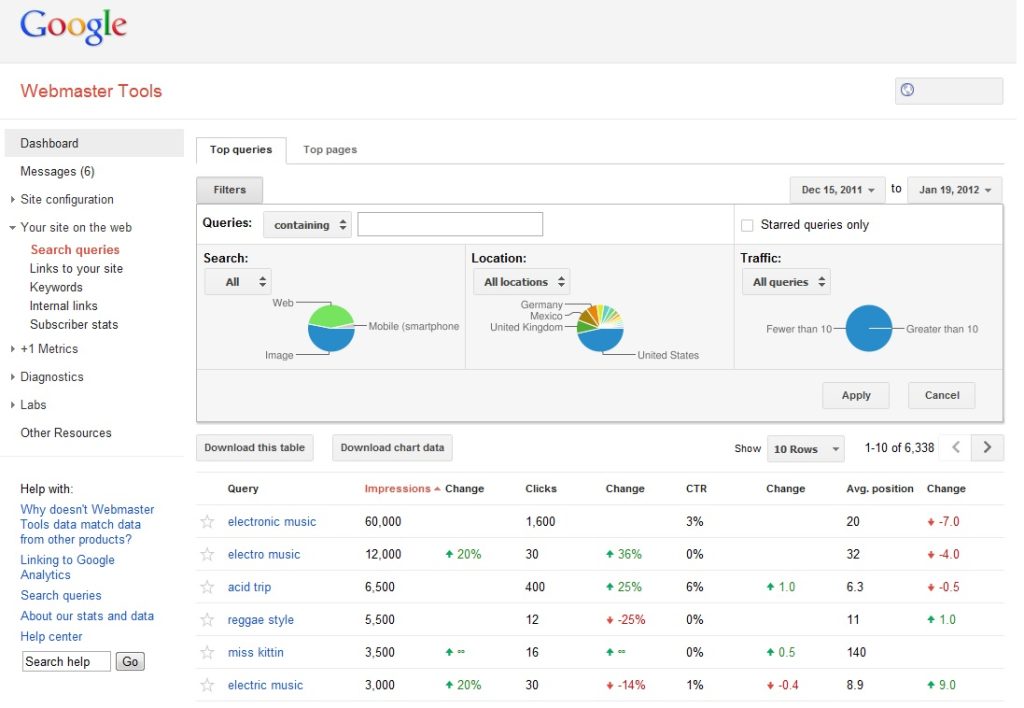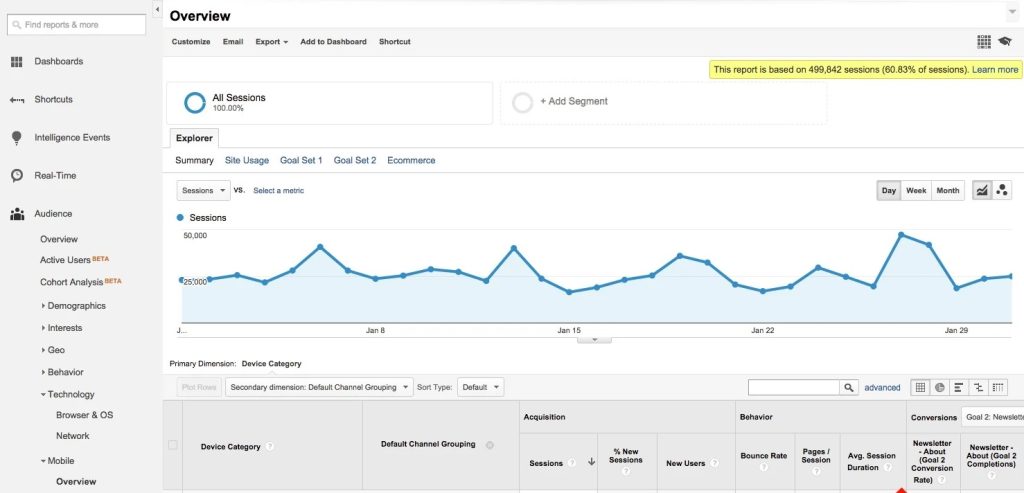Ethical or white hat seo practices
There are many ways to promote a website. One important strategy to consider is employing white hat SEO techniques. By learning about white hat SEO, you can ensure you’re using the best possible internet marketing strategy for your organization. In this article, we define white hat SEO, explain why these techniques are important and discuss how you can implement them.White hat SEO is a term used to refer to SEO strategies that function within the rules and expectations of search engines and searchers. It means implementing techniques to improve a website’s search engine ranking without relying on tricks to undermine a search engine’s algorithm. White hat SEO is the opposite of Black Hat SEO. Generally, white hat SEO refers to any practice that improves your search rankings on a search engine results over time to time.
Ethical and White Hat SEO Practices
In the pursuit of SEO success, it’s essential to adhere to ethical and white hat practices. Black hat techniques, such as keyword stuffing and link schemes, may yield short-term gains but pose significant risks, including penalties and loss of credibility. Ethical practices focus on creating valuable content, fostering genuine relationships, and adhering to search engine guidelines. Building a lasting legacy involves prioritizing user experience, providing valuable resources, and maintaining transparency with both users and search engines.
White hat SEO is a term that describes internet marketing practices that are approved by search engines. The goal of an SEO, or search engine optimization, strategy is to get a website to appear higher within a search engine’s results. Search engines determine where to rank websites based on many factors related to each website. SEO is the practice of adjusting your website to better fit the factors that search engines want.
Some examples of white hat SEO strategies include:
- Optimizing webpages for certain keywords
- Creating high-quality content
- Improving the speed of a website
- Using descriptive meta tags
- Improving site navigation
- Making a website easier to use on mobile devices
- Developing an internal linking strategy
- Networking to obtain backlinks
- Engaging on social media

Adhering to ethical SEO (Search Engine Optimization) practices is crucial for several reasons, as it helps maintain a fair and transparent online environment, fosters trust and credibility, and ensures long-term success for both businesses and users. Here are some key reasons why ethical SEO practices are important:
- User-Centric Approach: Ethical SEO prioritizes the user experience by creating relevant, valuable, and high-quality content. This leads to better engagement, increased time spent on a website, and ultimately, higher conversion rates.
- Credibility and Trust: Ethical SEO builds credibility and trust among users, as well as search engines. When websites follow transparent and honest practices, users are more likely to view them as reliable sources of information.
- Long-Term Sustainability: Ethical SEO practices focus on sustainable strategies that align with search engine guidelines. These strategies are less likely to result in penalties or algorithmic changes, ensuring the long-term visibility and success of a website.
- Level Playing Field: Ethical SEO promotes healthy competition by allowing businesses of all sizes to compete fairly based on the quality and relevance of their content, rather than relying on manipulative tactics.
- Search Engine Compliance: Adhering to ethical SEO practices ensures that websites stay within search engine guidelines. Violating these guidelines can lead to penalties, removal from search engine indexes, and loss of organic traffic.
- Positive Brand Image: Ethical SEO helps to build a positive brand image by demonstrating a commitment to integrity and user satisfaction. This can lead to stronger brand loyalty and customer retention.
- Quality Content Creation: Ethical SEO encourages the creation of high-quality, informative, and valuable content. This not only benefits users but also establishes the website as an authority in its field, leading to better rankings over time.
- User Accessibility and Experience: Ethical SEO practices often align with efforts to improve website accessibility and user experience, making content more accessible to all users, including those with disabilities.
- Reduced Risk of Penalties: By avoiding unethical tactics such as keyword stuffing, cloaking, and link schemes, websites are less likely to incur search engine penalties that can severely impact their rankings and visibility.
- Legal and Regulatory Compliance: Ethical SEO practices also consider legal and regulatory requirements, such as copyright and privacy laws, ensuring that a website operates within legal boundaries.
- Positive Impact on Society: Ethical SEO contributes to a healthier online ecosystem by discouraging spam, misinformation, and harmful content, leading to a more positive impact on society as a whole.
- Local and Global Reach: Ethical SEO can help businesses reach local and global audiences more effectively. By optimizing content for relevant keywords and providing accurate location-based information, businesses can connect with users who are genuinely interested in their products or services.
- Mobile-Friendly Optimization: Ethical SEO encourages the optimization of websites for mobile devices, ensuring that users have a seamless and enjoyable browsing experience regardless of the device they are using. This aligns with the increasing trend of mobile internet usage.
- Community Building: Ethical SEO fosters a sense of community by engaging with users through genuine interactions, responding to comments, and addressing their needs. This can lead to a loyal and engaged user base that shares content and contributes positively to the website’s growth.
- Social Sharing and Virality: Ethical SEO practices often result in content that is more likely to be shared on social media platforms and go viral. This organic sharing helps to increase brand visibility and attract more traffic without resorting to manipulative tactics.
- Ethical Link Building: Building high-quality, relevant, and authoritative backlinks through ethical means enhances a website’s credibility and authority in its niche. This can positively impact search engine rankings and referral traffic.
- Transparency in Metrics and Reporting: Ethical SEO includes transparent reporting of key metrics, such as traffic sources, conversions, and user behavior. This transparency helps businesses accurately assess the effectiveness of their SEO efforts and make informed decisions.
- Adapting to Algorithm Changes: Search engine algorithms frequently evolve to provide better user experiences and thwart manipulative tactics. Ethical SEO practices ensure that a website is better equipped to adapt to these changes and maintain its rankings.
- Positive User Feedback and Reviews: Providing valuable and accurate information through ethical SEO practices can lead to positive user feedback, reviews, and testimonials. These positive interactions can influence other potential customers and contribute to a strong online reputation.
- Contribution to Knowledge Sharing: Ethical SEO often involves sharing knowledge and expertise through well-researched and informative content. This contributes to the overall pool of knowledge available on the internet and helps users make informed decisions.
- Corporate Social Responsibility (CSR): Embracing ethical SEO aligns with a company’s commitment to corporate social responsibility. It demonstrates a dedication to ethical business practices and responsible online behavior, which can resonate positively with stakeholders and the public.
- Global Impact: Ethical SEO practices contribute to a more positive and valuable online environment on a global scale. By promoting accurate information and discouraging harmful tactics, businesses can play a role in shaping a healthier digital ecosystem.
In summary, adhering to ethical SEO practices is essential for creating a sustainable, user-focused, and trustworthy online presence. By emphasizing quality, transparency, and user satisfaction, businesses can achieve long-term success while contributing positively to the broader digital landscape.

Benefit of using white hat method
White Hat SEO techniques offer numerous long-term benefits that contribute to sustained growth, credibility, and success in the digital landscape. By focusing on user needs, valuable content, and ethical practices, you create a solid foundation for your online presence that can withstand changes and challenges over time.
Using White Hat SEO techniques offers a wide range of long-term benefits for businesses and websites aiming to establish a strong online presence. These benefits extend beyond short-term gains and align with sustainable and ethical practices. Here are some of the key long-term advantages of employing White Hat SEO methods:
- Sustainable Rankings: White Hat SEO focuses on creating high-quality content and building authoritative backlinks, which leads to more stable and sustainable search engine rankings over time. Unlike Black Hat techniques that might result in quick but short-lived ranking boosts, White Hat methods are less susceptible to algorithm changes and penalties.
- Credibility and Trust: Implementing ethical practices helps build credibility and trust among both users and search engines. Over time, users come to recognize and trust your brand as a reliable source of information, leading to increased organic traffic and repeat visitors.
- Steady Organic Traffic Growth: White Hat SEO methods are designed to attract organic traffic naturally by providing valuable and relevant content. As your website gains authority and visibility, you can expect a steady increase in organic traffic over the long term.
- Enhanced User Experience: Prioritizing user experience through methods like optimizing site speed, improving navigation, and ensuring mobile responsiveness creates a positive impression on visitors. A user-friendly website encourages longer visit durations and more frequent returns, contributing to improved rankings and engagement metrics.
- Brand Authority and Recognition: Consistently producing valuable content and engaging with your audience establishes your brand as an authoritative voice in your industry or niche. As your brand authority grows, you become a go-to resource, attracting both users and potential collaborators.White Hat SEO builds a strong brand equity over time. As your brand consistently provides value and meets user needs, you establish a reputation that endures beyond temporary trends or fads.
- Reduced Risk of Penalties: White Hat SEO techniques adhere to search engine guidelines, reducing the risk of penalties and potential removal from search engine indexes. This ensures that your website maintains its visibility and rankings, even as search algorithms evolve.
- Higher Click-Through Rates (CTR): White Hat practices, such as optimizing meta titles and descriptions, lead to more compelling search engine results. This often results in higher click-through rates, as users are more likely to click on well-structured and relevant listings.
- Positive User Engagement Metrics: White Hat techniques aim to create content that resonates with users and encourages engagement, such as comments, shares, and interactions. These positive engagement signals can contribute to improved rankings and visibility.
- Cost-Effectiveness: While White Hat SEO might require more time and effort upfront, it tends to be more cost-effective in the long run. Organic traffic acquired through ethical methods requires fewer ongoing expenses compared to paid advertising.
- Resilience to Algorithm Changes: Search engine algorithms frequently update to deliver better user experiences and combat spammy tactics. White Hat strategies are more adaptable to these changes, ensuring your website maintains its performance regardless of algorithmic shifts.
- Positive Online Reputation: Ethical practices contribute to a positive online reputation, both within your industry and among users. A strong reputation can lead to increased referrals, partnerships, and collaborations over time.
- Contribution to Industry Growth: By adhering to White Hat SEO practices, you contribute to a healthier and more valuable online ecosystem. Your commitment to ethical practices sets a positive example for others, promoting a higher standard of online behavior and content quality.
- Adaptability to Market Changes: White Hat strategies prioritize creating content that answers user queries and fulfills their intent. This approach positions your website to adapt to shifts in user behavior and search trends, ensuring your content remains relevant and valuable.
- Wider Audience Reach: High-quality content created through White Hat practices has the potential to attract a wider and more diverse audience. As your content gains visibility, it reaches various segments of your target audience, expanding your reach over time.
- Positive Word-of-Mouth Marketing: Users who have a positive experience with your website are more likely to share their satisfaction with others. This word-of-mouth marketing can lead to increased organic referrals and a growing user base.
- Authority in Voice Search: As voice search becomes more prevalent, White Hat SEO practices that focus on clear, concise, and relevant content contribute to better voice search performance. This can position your website as an authoritative source for voice search queries.
- High-Quality Inbound Links: Producing valuable content naturally attracts authoritative websites to link to your pages. Over time, these high-quality inbound links contribute to your site’s authority and enhance its visibility.
- Local SEO Dominance: Ethical local SEO practices, such as accurate business information, consistent NAP (Name, Address, Phone) data, and positive online reviews, can lead to dominant visibility in local search results over time.
- Better User Retention and Loyalty: Websites that provide value and offer a positive user experience are more likely to retain visitors and foster loyalty. Long-term users become advocates for your brand and contribute to sustained traffic.
- Investment in Future Growth: White Hat SEO represents an investment in the long-term growth and success of your online presence. The efforts you put into creating quality content, building relationships, and optimizing user experiences continue to pay dividends over time.






